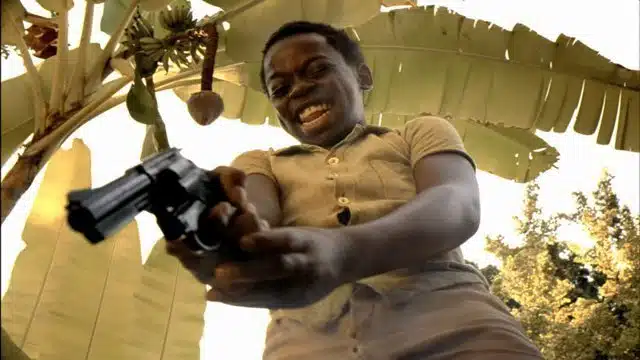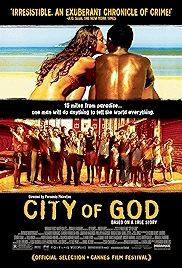A movie for every day of the year – a good one
1 March
Rio De Janeiro founded, 1565
On this day in 1565, the Brazilian city of Rio de Janeiro was founded. The city’s full name was decided as São Sebastião do Rio de Janeiro – in honour of the Portuguese king, Sebastian I, whose patron saint was also a Sebastian, and because it sat on the January River – so named because it had been discovered in 1 January 1502. After gold and diamonds were found in the area, Rio became a major centre of export and the Portuguese moved their Americas administrative centre there in 1763. It became important for a different reason when the Portuguese royal family and most of Lisbon’s nobles fled there in 1808, to avoid capture by Napoleon. Rio de Janeiro became, in fact, the official capital of Portugal for a while.
City of God (2002, dir: Fernando Meirelles, Kátia Lund)
Still looking astonishing, all these years after it first knocked the eyeballs out of anyone who saw it in 2002, City of God opens with a brilliant ground level shot of a chicken charging through the Cidade de Deus favela in Rio de Janeiro, the camera then somehow following this mess of squawking through narrow byways, on the way acquainting us with the film’s geographical territory in one of the most memorable establishing shots ever. It also sets the tone for the whole film, a rush of raw energy tracking life in the teeming favela through the story of Rocket, a gang member who we first meet as the chicken meets him. His life story is – in true Goodfellas style – of the young guy learning how to become part of a gang, pulling increasingly audacious strokes, earning his stripes. And yet none of this ever becomes bigtime or has any chance of doing so, because for denizens of the City of God, life revolves around the favela. The notable exception to this internal focus being the raid on a nearby motel organised by Li’l Dice, the friend of Rocket who is going to (barely) grow up to be one of the favela’s most feared gang leaders. And at the other end of the sociopath spectrum we have Upright Ned, a decent sort drawn into the life of the gang after his girlfriend is raped and his family murdered. None of these stories, nor the one of Rocket eventually becoming a photojournalist and escaping the favela, matter as much as the way that the picture is made. It’s a mass of colour and movement, whipcrack edits and bravura handheld camera designed to disorient and intoxicate. Both of which director Meirelles and cinematographer César Charlone achieve.
Co-director Kátia Lund was in charge of schooling the actors, and you won’t find more naturalistic performances anywhere. Together Lund and Meirelles achieve something extraordinary: a story from the ghetto that is alive to the exotic difference of that world but doesn’t glamourise it. Yes, the colour palette Meirelles is working with – sunny, shocking yellow predominates – does tend to bathe everything in a gorgeous glow. But there’s no way you’d want to live in this place. Wait till you see the almost unbearable scene involving a group of small kids and a gun.
Why Watch?
- Based on the novel by Cidade de Deus resident Paulo Lins
- The best film by Meirelles
- César Charlone’s remarkable cinematography
- See what got critics, festival-goers and awards committees raving
City of God – at Amazon
I am an Amazon affiliate
© Steve Morrissey 2014

